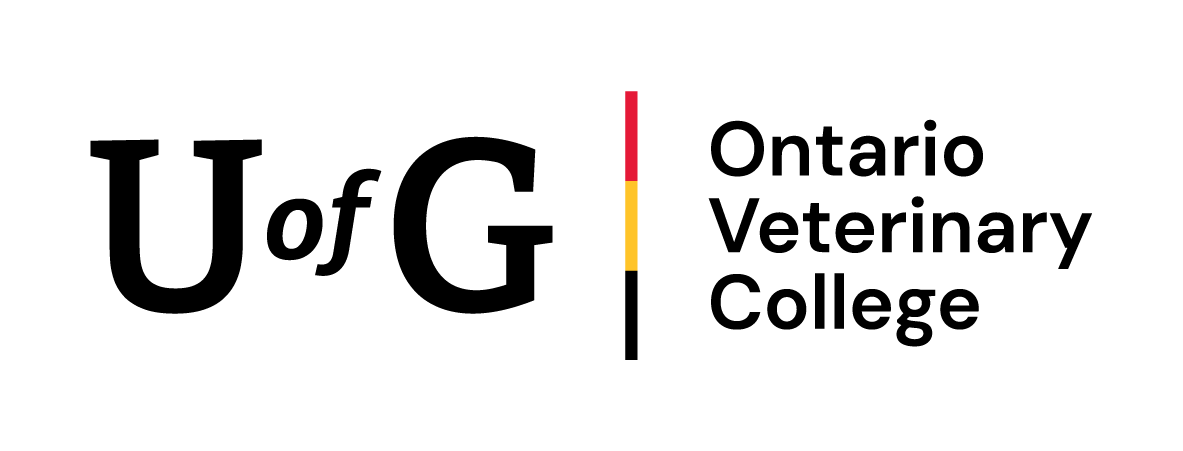Celebrating 10 Years of the Saputo Dairy Care Program
In 2015, the Ontario Veterinary College (OVC) and the Campbell Centre for the Study of Animal Welfare (CCSAW) launched the Saputo Dairy Care Program with a commitment of $500,000 from Saputo. Ten years later, the world’s first and only formal dairy cattle welfare training program for veterinarians is celebrating Saputo’s second investment renewal that will bring the company’s total support for dairy cattle welfare at OVC to $1.75 million.
“We could not be more grateful for Saputo’s leadership in seeking to reform dairy cattle care and welfare and recognizing that veterinarians are the right agents for this change,” says OVC Dean, Dr. Jeffrey Wichtel.

This year’s renewal pledge of $500,000 will allow OVC to continue and expand dairy welfare training and outreach for student and practicing veterinarians, dairy producers and industry representatives, as well as hire a new full-time Saputo Dairy Care Program Manager, Dr. Anna Schwanke.
“From the start, a full-time manager was envisioned to coordinate logistics and communications and assist with course development and delivery,” says Dr. Todd Duffield, Professor and Chair of the Department of Population Medicine, “We were hard-pressed to find someone with the unique background we were looking for.”
Saputo Dairy Care faculty, Drs. Duffield, Derek Haley and Lena Levison were pleased to welcome Dr. Anna Schwanke to the role in January. Schwanke’s interest in food animal care began with family stories about her grandparents’ cattle farm. She earned her degrees at the University of Guelph (U of G), culminating in a PhD in Animal Behaviour and Welfare. The focus of her thesis was how dairy cow personalities affect their feeding and milking behaviours. The results, published in the Journal of Dairy Science, suggest that changes in the environment, such as the introduction of new technology like milking robots that might impact some cows more than others, affecting their milk production.
Understanding cows’ individual characteristics has implications for herd management.
“What attracted me to this role was the opportunity to ensure that research like mine gets put into practice,” says Schwanke.
Schwanke has experience as a teaching assistant and outreach coordinator for the Ontario Agri-Food Innovation Alliance. Her appointment will boost the Saputo Dairy Care Program’s outreach to licensed veterinarians and dairy producers. Schwanke will help organize funded workshops, and continuing education for field veterinarians, and bring dairy cattle welfare researchers from across Canada together with key dairy industry partners for the annual Saputo Dairy Welfare Discussion Forum. With Schwanke in place, Dr. Kelly Barratt, Saputo’s Veterinary Director of Animal Welfare, is looking forward to wider engagement.
“We are delighted to have Dr. Schwanke join the Saputo Dairy Care team at U of G,” says Barratt. “We welcome and
Former CCSAW Director, Dr. Georgia Mason worked to ensure that welfare researchers have a further opportunity to share their findings at the Annual CCSAW Research Symposium. While there were a variety of welfare topics represented at the Symposium, dairy cattle welfare was a key focus. “Dr. Schwanke presented on how the cow’s personality impacts their reactions to changes in their surroundings in the 2023 Symposium,” says Mason. “I’m thrilled to see her appointed to this new role.”
The Saputo Dairy Care Program is housed at OVC because educating student veterinarians is the primary priority. Over the past decade, more than 130 senior large-animal veterinary students from OVC but also from across Canada, the U.S. and beyond, have engaged in week-long immersive rotations. This largely hands-on training offered in either semester of their final year delves into sometimes controversial issues affecting dairy cattle welfare, like transportation and culling decisions.
One rotation student reviewed the experience this way: “It really reaffirmed my commitment to wanting to keep pushing for change and not just accept the status quo. A lot of the topics, videos and visits were really tough, but it was very thought-provoking.”
“These are complicated and difficult subjects that can’t be fully addressed in the regular curriculum,” says Levison, rotation instructor and veterinarian. “We offer the students lots of time to debrief and discuss what they’ve learned.”
In 2022, in response to alumni interest in more in-depth training, the CCSAW and Dairy at Guelph faculty began offering a second week-long course in the summer. Early in their veterinary career, outstanding graduates were admitted to another rotation, tailored to their specific animal care interests and the nature of their clinical practice. Calling them "Saputo Dairy Welfare Scholars", Haley says, “We believe these returning alumni will become the next leaders in the field of dairy cattle care and welfare."
